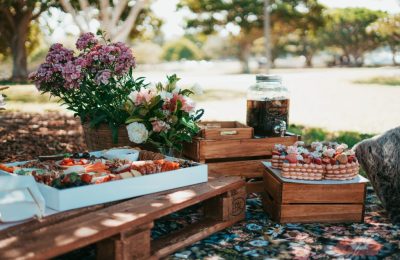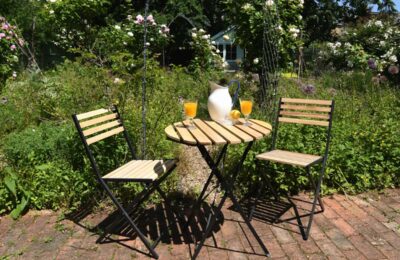Futon Company says: Now that we’re well and truly back in the swing of a near-normal way of life we’ve got to get used to multi-tasking again. Forget the work/cooking/Zoom calls type of multi-tasking – in September 2021 we’ve got whole new layers of living to get used to again (think in real life (IRL) drinks/delayed weddings/weekends away with the girls/friends coming to stay. This is our new/old reality and we had forgotten just how much juggling is evolved (plus we had forgotten that we need to pace ourselves in the face of so much lovely food and drink!!). To help get us in the zone and back on track, we’re sharing some handy hacks and hints from Arielle Tchiprout. Writing in June 2021 Red Magazine, her article 8 Ways to simplify your life is just what we need right now. She says:
Life can be hard, but we do tend to make it harder. There are events we don’t have control over (pandemics, job losses, heartbreak), but we also pile on extra difficulties (busy schedules, non-stop goal chasing) until we’re overwhelmed. The modern world complicates things, says Dr Tara Swart, neuroscientist and author of The Source. Over time, the amount of overload we’ve had to deal with has increased, and we’ve defaulted to meet it.
We’re so accustomed to that ‘more, more, more’ setting that it can be hard to switch off. Whatever you have to do expands to fill the time available, says Dr Swart. During the lockdowns, many of us gained hours in the day we would have spent commuting, but this ended up blurring into a longer workday. It’s partly our perception that life is busy and complicated, and we often feel overwhelmed whether we actually have more to do or not. Simplifying your life can result in more energy, less fatigue, increased resilience and improved immunity. So how can we live in a way that feels effortless? By finding small ways to unclog that overload every day….
• Chop up the chores: We spend way too much time procrastinating over tasks that could be done pretty quickly. Enter the Pomodoro Technique, which can be used for anything from work projects to clearing out the garage. Choose a task and give yourself 25 minutes to focus on it – no distractions…. Top tip: Before you go to bed, write down the thing you’re dreading most about the next day, then do that as soon as you wake up. Getting the thing that is draining you out of the way is a really good tactic for reducing stress.
• Integrate mindfulness into your day: Mindfulness doesn’t mean sitting in the lotus position for an hour. You can find little pieces of mindfulness throughout the day. You can try mindful eating at mealtimes, which involves pausing before each mouthful and tuning into the taste of the food without distractions such as phones or the TV. Or, when you’re talking to a relative, giving them your full attention and making eye contact. You can focus on your breath at any time of the day, even if walking around, speaking or working at your laptop. Why? Mindfulness helps you regulate your emotions, and simplifies things for your brain, by narrowing your focus.
• List like a pro: Break up your to-do list into sections. Group together tasks that need to happen today, putting the most urgent at the top. Write another list next to that of ongoing tasks. You may also want to have a separate work list too – make sure you keep work tasks specific (finish 5 page report) rather than general (organise conference) as it will make ticking the tasks off more achievable. Add a self-care list. Write down all the things that make you feel good (painting your nails, reading a book, lighting a scented candle or listening to a podcast) and try to tick off at least one every day.
• Create micro-habits: We know we need to get more sleep, exercise and eat healthier food, but making these changes can feel like an impossible task. Dr Swart recommends making small changes in incremental stages. Pick two or three small things, such as going to bed 15 minutes earlier or drinking an extra glass of water a day. They feel manageable. Then, every three months, add another two or three micro habits and commit to those. By the end of the year, you’ll have 8-10 positive habits that have become part of your routine. Struggle to make habits stick? Attach them to something you love. If you enjoy a hot shower, do 12 minutes of meditation before you jump in. By creating a reward, the habit is more likely to stick.
• Make a weekly plan: Advanced planning is a great way to make life easier. Draw up a rota for the week that goes on the wall, and every Sunday sit down and go through the rota to see what is coming up.
• Reduce your choices: According to research from Cornell University in the US, we make 35,000 decisions every day, from where we move our bodies, to what to eat, to whether to say yes to that BBQ at the weekend. See if you can reduce the amount of decisions you have to make in a day. This could mean limiting your outfit or lunch choices, or having non-negotiable routines, such as always walking the dog at the same time.
• Ease mealtime planning: Meal planning holds the key to easier evenings. Keep a list of all your favourite recipes in one place, so it’s easier to pick what to cook…. Of course, you can swap as you go along, but it helps to have a guide to fall back on.
• Utilise your night before: Doing these quick four things in the evening will give you more time the following morning:
o Find all your essentials for the next day, such as backpacks, keys and wallets. Establish where they are now so you won’t be hunting for them as you’re rushing out the door.
o Set a timer for 5 minutes and tidy up. There’s less grumbling if it’s only for five minutes.
o For 20 seconds look in the fridge. Yes, that all you have to commit to – looking. But chances are you’ll end up considering tomorrow’s breakfast and planning lunches.
o Get into your pyjamas. Even if you’re planning to stay awake for longer, do your bedtime prep early. The call of routine is so strong, you may find yourself getting an earlier night, which will make you feel brighter the next day
Futon Company says: Brilliant article. Some really, really helpful hints and tips! As experts in small space living we’re all about finding ways to simplify your life through having a functional, well ordered and beautiful space. When space is at a premium there’s no room for chaos. Rather everything needs its own place, and storage is super important, especially when you work or study at home. Things like storage units, hooks, shelving and multi-functional furniture are the key to streamlining your space. It’s time to get organised!











